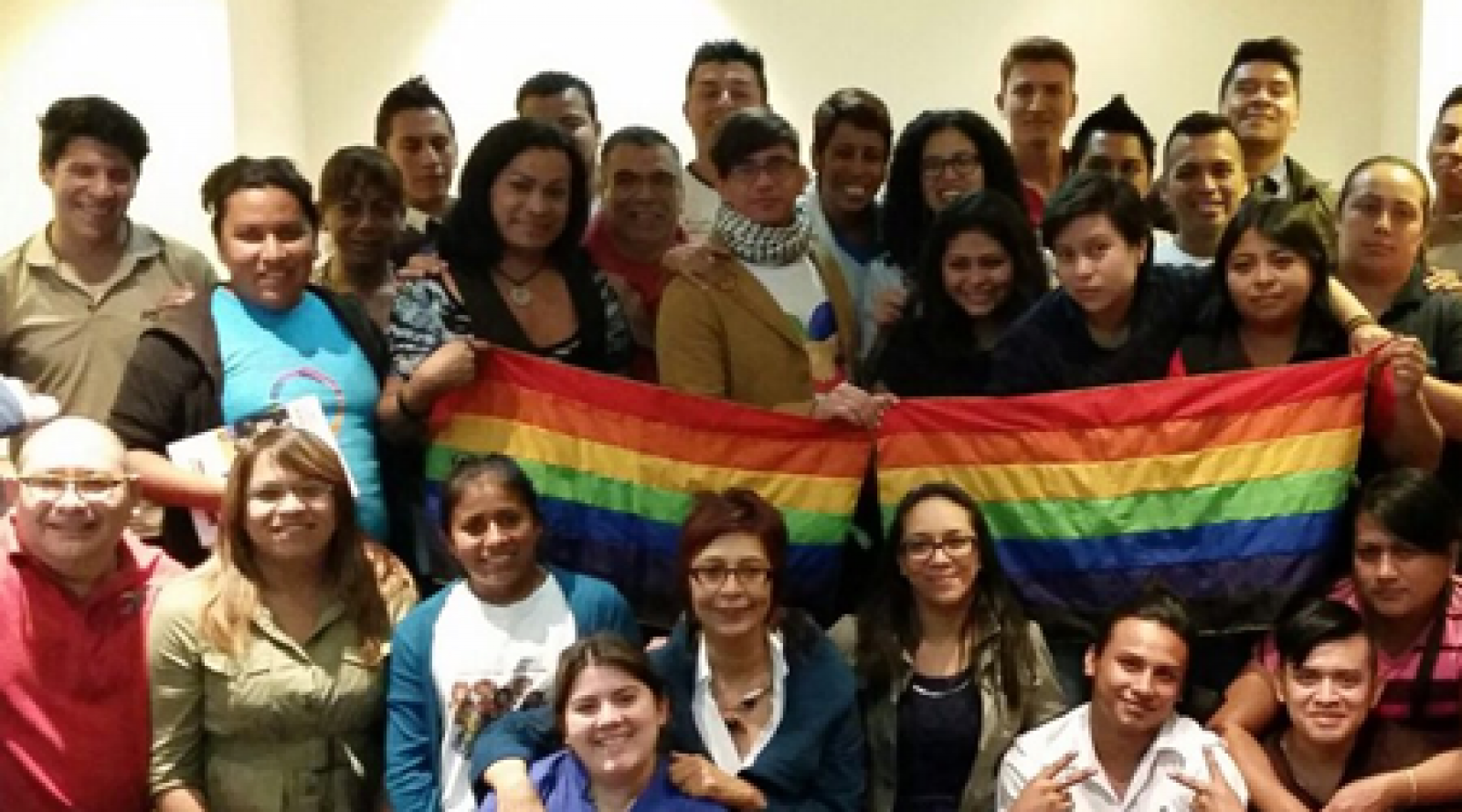
SHARE
This year marks the 20th anniversary of the signing of the peace accords that ended Guatemala’s 36-year internal conflict that deeply divided the country. However, in the two subsequent decades many of the accords’ goals remain to be achieved in critical areas such as rule of law, social justice, and the alleviation of poverty for marginalized groups including women, indigenous people, and lesbian, gay, bisexual, transgender, and intersex (LGBTI) communities. LGBTI issues, in particular, have not been openly discussed in this socially conservative country; as a result there is a significant lack of knowledge on gender and sexual diversity which has resulted in decades of stigma and discrimination against this segment of the population.
Despite these challenges, the Consortium for Electoral and Political Process Strengthening (CEPPS) has identified openings among key actors and has taken advantage of this space to hold awareness trainings with National Civil Registry (Registro Nacional de las Personas, RENAP), Supreme Electoral Tribunal (Tribunal Supremo Electoral, TSE), political parties, and journalists. Partnering with LGBTI civil society activists to carry out these trainings, CEPPS’ goal is to institutionalize these training processes so that they may be replicated by government agencies. The first set of trainings focused on diversity and awareness training with 337 RENAP personnel responsible for issuing identification documents in 11 departments. Following these workshops, 73 percent of participants demonstrated an increased understanding of issues facing LGBTI communities. Additionally, RENAP approved a fee waiver for 19 trans* women to receive their identification document, which is necessary for voting, at no cost.
Seventy-three percent of participants demonstrated an increased understanding of issues facing LGBTI communities.
Currently, CEPPS is working with the TSE’s Institute for Civic, Political and Electoral Training (Instituto de Formación y Capacitación Cívico-Política y Electoral, IFCCPE) on enhancing LGBTI non-discrimination and sensitivity. CEPPS, with the support of LGBTI civil society activists, presented a three-part curriculum with TSE trainers and staff to ensure that LGBTI communities are appropriately included in the Institute’s trainings with the public on civic, political and electoral participation. CEPPS recently began a training process with political parties in collaboration with TSE trainers. These trainings provide a first opportunity for TSE staff to put into practice the curriculum on LGBTI non-discrimination and awareness and serve to institutionalize the methodology.
Carlos Velasquez, Director of the IFCCPE, highlighted the importance of the training, noting that “this is the first time that LGBTI issues have been addressed within the TSE. While changing beliefs and breaking stereotypes takes time, these trainings have started a debate within the TSE on the need to incorporate LGBTI non-discrimination in all training.” He believes that “there will be an immediate and visible impact during the 2019 elections. The TSE plans to include respect, inclusion, and non-discrimination of LGBTI communities as a cross-cutting issue in all trainings and manuals for TSE personnel at the national, departmental and municipal levels.”
Ami Hernandez, a member of local partner Red Nacional de la Diversidad Sexual y VIH de Guatemala, or REDNADS, and an activist involved in training TSE staff, described becoming “involved in the trainings with the TSE because, in the past, LGBTI communities have not been taken into consideration. These trainings helped bring visibility to our communities and [hopefully] will lead to a better understanding within the government of our needs and priorities.”
In addition to its work with RENAP and the TSE, CEPPS has also been working with political parties to strengthen women’s electoral participation, including by increasing the number of both cisgender and transgender women running for office. While political parties are a critical vehicle for political and electoral participation, there has been resistance from political parties to address topics such as these that may be considered too politically sensitive. To help overcome this challenge, CEPPS has looked for innovative ways to address the topic and share personal stories that humanize the issues.
During the 2015 electoral period, CEPPS organized three candidate roundtables and a video forum with presidential candidates from three political parties to provide an opportunity for LGBTI groups to advocate for their needs. More than 300 people participated in these first of their kind events, which were successful in bringing visibility to LGBTI issues in the political sphere.
Prior to the elections, CEPPS also supported a theater group in presenting short stories of personal stories of discrimination, which will be performed for individual political parties as part of the party training project. Says Hernandez, “they need to know who we are and that we matter.”
CEPPS has also worked with local journalists to help raise awareness and enhance advocacy for LGBTI inclusion within the profession. These trainings aimed to reduce heterosexual bias in the participants’ work and increase the visibility and coverage of the contributions of women and LGBTI individuals in order to more firmly position journalists as agents of change. Debby Linares Sandoval, a longtime LGBTI activist and an advisor on CEPPS’ current program in Guatemala, notes that “visibility is the first step toward empathy. Only once people are aware of and can understand the struggles of a community will they be willing to make changes that address their needs.”
For more information on CEPPS’ LGBTI inclusive programming in Guatemala, please visit:
- https://www.ndi.org/ceppsguate
- https://www.demworks.org/section/voices-guatemala
- https://www.ndi.org/Debby-Sandoval_Guatemala-LGBTI-Rights-story
- http://ifes.org/news/ifes-elections-more-inclusion-less-violence-program-guatemala
- http://www.democracyspeaks.org/blog/promoviendo-una-cultura-de-paz
Published on September 15, 2016


